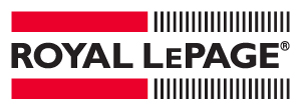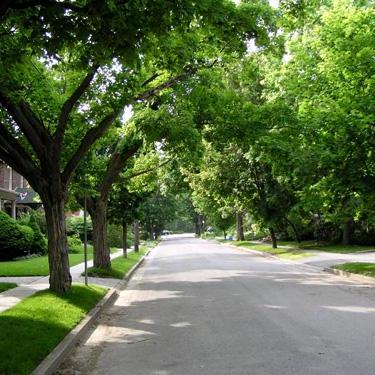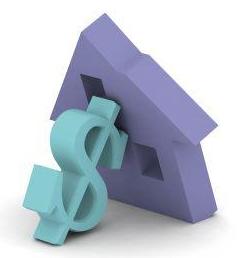


Choosing the right neighbourhood is an important part of finding a home. If you love the house but hate the neighbours, or have the perfect kitchen but have an agonizing two-hour commute; you’re never going to feel completely comfortable living there. Your best bet is to figure out if your neighbourhood is a good fit with your family before you start looking for a home there (or certainly before you put in an offer). Spend some time there; take a walk through the streets, visit local shops and restaurants, and pick up a community paper to get a sense of the area’s personality.
Here are few questions that can help you figure out if a neighbourhood is right for you:
What does the area look like? Do homes look cared for? Even in moderately-priced areas, pride of ownership helps keep property values up. Keep an eye out for signs of neglect like overgrown laws, houses in need of paint and vacant lots (which can be zoned for commercial use, or end up getting used as dumps). On the other hand, if an area has a lot of neglected-looking homes but you notice that a number look like they’ve been recently renovated, that may be a sign that the neighbourhood is becoming gentrified; buying a home there and fixing it up can be a good long-term investment.
What types of people live there? Families? Retirees? First-time homeowners? Professionals with no kids? An area populated mainly by young families, for example, will feel very different from one with lots of college and university students.
How convenient is it? Figure out how far you’ll have to travel to do everyday stuff like grocery shopping. Where’s the closest gym? Dry cleaner? Post office? What about parks and recreational facilities? Being close to amenities isn’t important to everyone, but it’s a real day-to-day time saver, and can make the difference in the feel of a neighbourhood; a place where people walk to the store and the library has a very different flavour than an area where people have to drive everywhere they need to go.
Is it a safe place to live? Vandalism and deterrents like “Beware of dog” signs or bars on windows can mean there’s a high crime rate in the area. Keep an eye out for graffiti, too – it could be a sign of gang activity. Check with local police for info about crimes in the area; they’ll also be able to tell you about how active area residents are in terms of crime prevention and community policing.
Are there schools nearby? If you have kids, proximity and quality of schools is a major consideration. Talk with people who live in the area, and call local schools or check online to get test scores and ratings. Figure out exactly where schools are located to see if your kids can walk or if they’ll have to be driven or bussed.
How long will it take to get to work? Do a dry run of your commute in rush hour. Figure out how often buses run past your house or how far you are from a major highway. If you need access to the airport, is it easy to get there by car, bus or taxi?
What are the property values like? Your home is an investment, so it pays to buy in an area where properties will increase in value. Ask your REALTOR® for info on property values in the area for the last 10 years so you can get a sense of how much they have gone up over time.
What’s in store for the area? Development can change the personality of a neighbourhood, and increase taxes and traffic. Look for new construction in the area and check with city hall or the local chamber of commerce for planned housing developments, new facilities, new retailers, etc.
Is it quiet or noisy? Visit the area at different times of day to get a sense of the noise level. A quiet street may be party central once the sun goes down, and an area near a highway may be fine at most times, but noisy at rush hour. Listen for barking dogs, traffic noise, overhead planes, and loud music.
Finding a neighbourhood you like is just as important as living in a home you love. Good neighbour, great amenities, nice schools and cool shops can make or break how you feel about your house or condo. So talk to a REALTOR® who specializes in the area you’re interested in, do your research, and you should be able to find a community that fits your needs and your lifestyle.
Trademarks owned or controlled by The Canadian Real Estate Association. Used under licence.

These two terms are often misused and this may cause some confusion. It is very important upon beginning the home buying process that you understand the difference; it can mean landing the home of your dreams or losing out because your financing was not in place.
Pre-Qualification can be done quickly in person, over the phone or even online. It is simply a preliminary gathering of basic financial information to give you an approximate calculation of how much you may be approved for. You would provide details such as income, assets and liabilities.
Pre-Approval is a significantly more involved process. During this process you will be asked to provide in depth information regarding your employment, income, assets and liabilities. The financial institution will run a credit report and verify all information that you provide, then they review your whole application and either approve or decline it. The process can be somewhat time consuming, however, it will make the home buying process run much smoother and without delays. Pre-Approval approves the Buyer’s credit worthiness, however the actual ‘mortgage’ is still subject to the property being approved by the lender. As you can imagine, there are several benefits to getting pre-approved:

That gorgeous house on the corner lot may look great, but it could be hiding all sorts of expensive, annoying problems, from a leaky roof to faulty wiring to a mouldy basement.
Make sure your home is solid and secure inside and out before you buy it. A home inspector will determine structural and mechanical soundness, identify problem areas, provide cost estimates for any work required, and generate a report. It’s a great way to avoid headaches and costly problems that can turn a dream home into a money pit.
If you decide to go ahead and buy a home with issues that have been flagged by your inspector, you can base your offer on how much potential repairs and upgrades may cost.
Home inspection costs range according to size, age and location of the home. Your Royal LePage sales representative can recommend a reputable home inspection service or arrange for an inspector to visit your property.
The real estate market is always changing, and it helps to understand how market conditions can affect your position as a buyer. Your agent can provide you with info on current conditions and explain their impact on you.
Buyers’ Market
The supply of homes on the market exceeds demand.
Characteristics
Implications
Sellers’ Market
The number of buyers wanting homes exceeds the supply of homes on the market.
Characteristics
Implications
Balanced Market
The number of homes on the market is equal to the number of buyers.
Characteristics
Implications